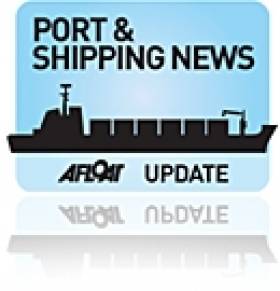Displaying items by tag: ESPO Reelect chairman
Garcia-Milà Re-Elected as European Sea Port Organisation Chairman
#EPSOchairman - Santiago Garcia-Milà has been unanimously elected for a second term as Chairman of the European Ports Organisation (ESPO) following a vote of the organisation's General Assembly held in Brussels this afternoon.
The General Assembly also elected Annaleena Mäkilä and Eamonn O'Reilly as Vice-Chairs.
Mr. O'Reilly, who serves as the Chief Executive of the Dublin Port Company, will now start a second term in the role. Ms. Mäkilä is currently Executive Director of the Finnish ports Association.
Santiago Garcia-Milà starts his second term as Chairman of ESPO, following his tenure for the years 2012-2014.
Upon his re-election, Mr Garcia-Milà said "the last two years were quite challenging for ESPO, both with a new port regulation proposal on the table and the development of a new TEN-T policy framework. On both topics, ESPO has succeeded, notwithstanding the diversity of its ports, in taking a solid position and work in a professional way with EU policy makers towards a better policy".
The work is not finished, he added. "I hope we can continue on this path, explain to EU policy makers how ports function, share our knowledge and our experience and convince Europe's decisions makers that Europe's ports work. I am happy to contribute to this work for two more years and would like to thank ESPO members for this vote of confidence".
Mr.Garcia-Milà is currently Deputy General Manager of the Port of Barcelona, in addition to being Vice-President of the International Association of Ports and Harbours (IAPH), the President of Barcelona's Port Community System, PortIC, Chief Executive Officer of tmZ, Zaragoza Inland Terminal and associate lecturer in International Marketing at the University of Barcelona.
The election of Mr. Garcia-Milà coincides with the publication of ESPO's Annual Report 2014, which outlines the activities of the organisation over the past year. A copy of the report can be downloaded HERE.
In addition, tonight will see the awarding of the sixth annual ESPO Award on Societal integration, as previously reported on Afloat.ie. The winner will be announced by Joao Aguiar Machado, Director General, DG MOVE, at a ceremony at the Albert Hall in Brussels.
The theme of this year's ESPO Award is 'Innovative Environmental projects'. The shortlisted candidates are the Ports of Huelva, Koper, Lisbon, Marseille and Rotterdam.





























































